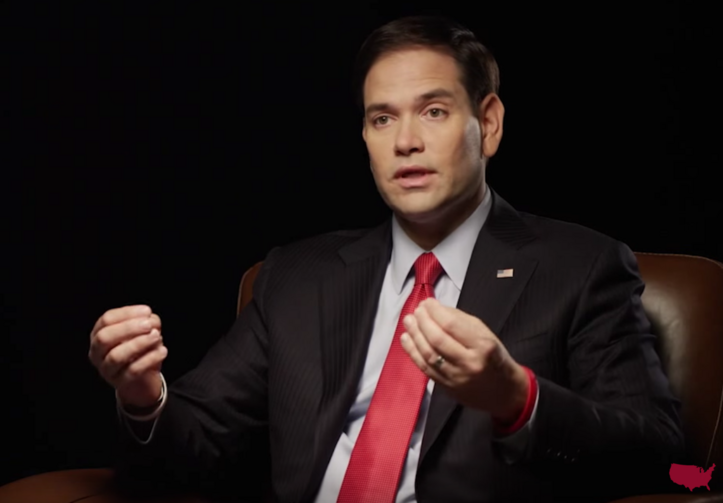President Obama didn’t change the political dynamic in Washington with his Sunday-night speech on terrorism, nor was he expected to. Mirroring perceptions of the nation’s economy, the country seems divided between Democrats who support a steady, no-panic approach to fighting terrorism (“The threat from terrorism is real, but we will overcome it,” said President Obama on Sunday) and Republicans who despair that we are not taking the threat seriously enough. Republican presidential candidate Donald Trump, still leading in GOP primary polls, tweeted after the speech, “That all there is? We need a new President— FAST!”
Mr. Obama listed four strategies for destroying the terrorist group ISIL (also known as ISIS): “continue to hunt down terrorist plotters”; “continue to provide training and equipment to tens of thousands of Iraqi and Syrian forces fighting ISIL” work “with friends and allies to stop ISIL’s operations”; and “pursue cease-fires and a political resolution to the Syrian war.” (See transcript of the speech here.) Each use of the word “continue” must have grated on Republican voters. Even Ohio Governor John Kasich, regarded as the most moderate of a very conservative group of GOP candidates, called for “bolder” military action.
“I know that after so much war,” Mr. Obama said in his speech, “many Americans are asking whether we are confronted by a cancer that has no immediate cure.” The analogy to cancer is telling. Almost everyone accepts that we have limited control over finding a cure for that disease; we might get lucky unexpectedly soon, but more likely cancer is something we’ll only be able to minimize and mitigate for decades, maybe centuries, to come. Experts in terrorism may agree with this comparison, but it’s considered a political liability to talk about managing or minimizing events such as the shooting massacre in San Bernardino.
Indeed, the American Prospect’s Paul Waldman reminds us that John Kerry, as the 2004 Democratic presidential nominee, said an achievable goal was “where terrorists are not the focus of our lives, but they’re a nuisance.” He likened terrorism to organized crime, saying the best-case scenario was that “it’s something you continue to fight, but it’s not threatening the fabric of your life.” Mr. Kerry’s opponent, President George W. Bush, pounced on the remarks, saying, “I couldn’t disagree more. Our goal is not to reduce terror to some acceptable level of nuisance, our goal is to defeat terror by staying on the offensive.” The Bush campaign rushed to make a campaign ad denouncing Mr. Kerry for failing to “understand the threat.” There have been similar reactions to Mr. Obama’s speech, with Senator Tom Cotton (R-Arkansas) saying, “President Obama is a wartime president who doesn't seem to realize it.”
Florida Senator Marco Rubio, another major Republican candidate had already released a video in November in which he said of “radical Islam,” they “literally want to overthrow our society.” The title of the campaign ad made everything clear: “This Is a Clash of Civilizations. Either They Win or We Win.” Left unsaid is what “winning” would be. Would our oil-rich ally Saudi Arabia, which New York Times columnist Thomas Friedman calls the “greatest purveyor of radical Islam,” be left standing?
The Atlantic’s Peter Beinart walks through Mr. Obama’s cool (or lukewarm?) thinking on terrorism:
Unlike Rubio, he considers violent jihadism a small, toxic strain within Islamic civilization, not a civilization itself. And unlike [President George W.] Bush, he doesn’t consider it a serious ideological competitor. In the 1930s, when fascism and communism were at their ideological height, many believed they could produce higher living standards for ordinary people than democratic capitalist societies that were prone to devastating cycles of boom and bust. No one believes that about ‘radical Islam’ today. In Obama’s view, I suspect, democratic capitalism’s real ideological adversary is not the ‘radical Islam’ of ISIS. It’s the authoritarian, state-managed capitalism of China.
It wasn’t that long ago, of course, that Mr. Trump was talking about the threat of China. On the same day as the San Bernardino massacre, talking about negotiations to reduce global warming, the candidate said, China is “laughing at us because China doesn’t obey any of these rules.” But China now may be too abstract a threat compared with ISIS.
In the aftermath of San Bernardino, even some of Mr. Obama’s supporters are thinking his calmness may be a liability. James Fallows writes, “Obama’s lucidity about confronting an evil, and working strategically against it without taking its bait, is something I greatly respect in him. But this same bloodless-seeming logic is the trait that led to the post-speech complaints about his coldness, his dispassion, his inability to offer something new.” And Josh Marshall worries that the Sunday speech may only create a political vacuum that the Republicans are eager to fill: Is it really responsible to be so responsible that it does nothing to check demagogic and Islamophobic responses?”








